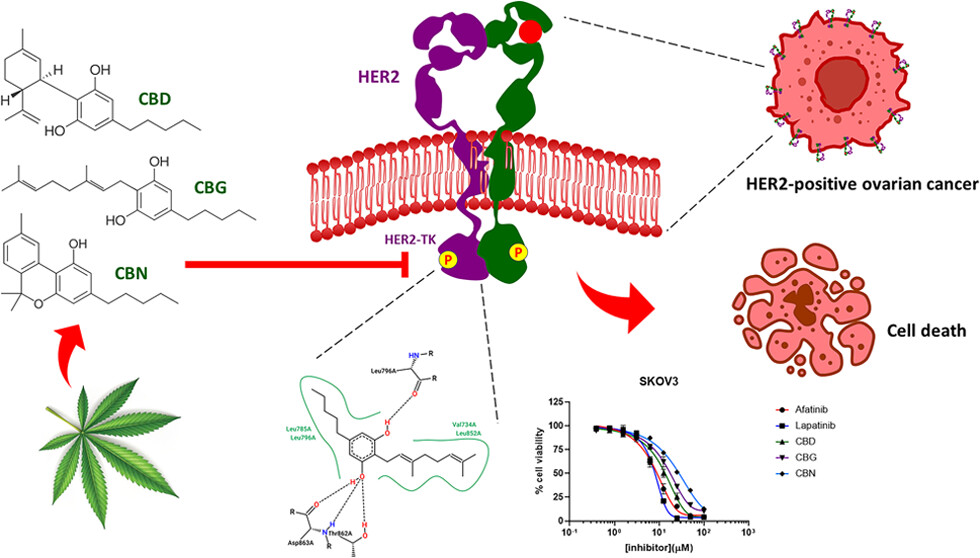A new study published in the peer-reviewed journal ACS Omega shows that cannabinoids, including cannabidiol (CBD) and cannabigerol (CBG), could serve as promising treatments for HER2-positive ovarian cancer.

Researchers from Kasetsart University, Nation University, King Mongkut’s University of Technology, and the Thailand Science Park conducted kinase inhibition assays, surface plasmon resonance (SPR), molecular docking, and cell viability tests to evaluate the efficacy of CBD, CBG, and cannabinol (CBN) in targeting HER2-positive cancer cells.
According to the study, “SPR analysis revealed that cannabinoids bind strongly to HER2-tyrosine kinase (HER2-TK), with CBD showing the highest affinity (K D = 6.16 μM), significantly better than afatinib (K D = 26.30 μM), and CBG demonstrating moderate affinity (K D = 17.07 μM).” Additionally, “in kinase inhibition assays, CBG was the most potent inhibitor (IC50 = 24.7 nM), followed by CBD (IC50 = 38 nM), suggesting their ability to disrupt HER2-mediated signaling pathways.”
The researchers also found that “CBD and CBG effectively inhibited the growth of HER2-positive SKOV3 cells (IC50 = 13.8 μM and 16.6 μM, respectively), comparable to traditional tyrosine kinase inhibitors.”
These results suggest that cannabinoids, particularly CBD and CBG, could serve as alternative or adjunct therapies for HER2-positive cancers, potentially helping to mitigate drug resistance and reduce adverse effects associated with existing treatments.
You can find the full study here.







